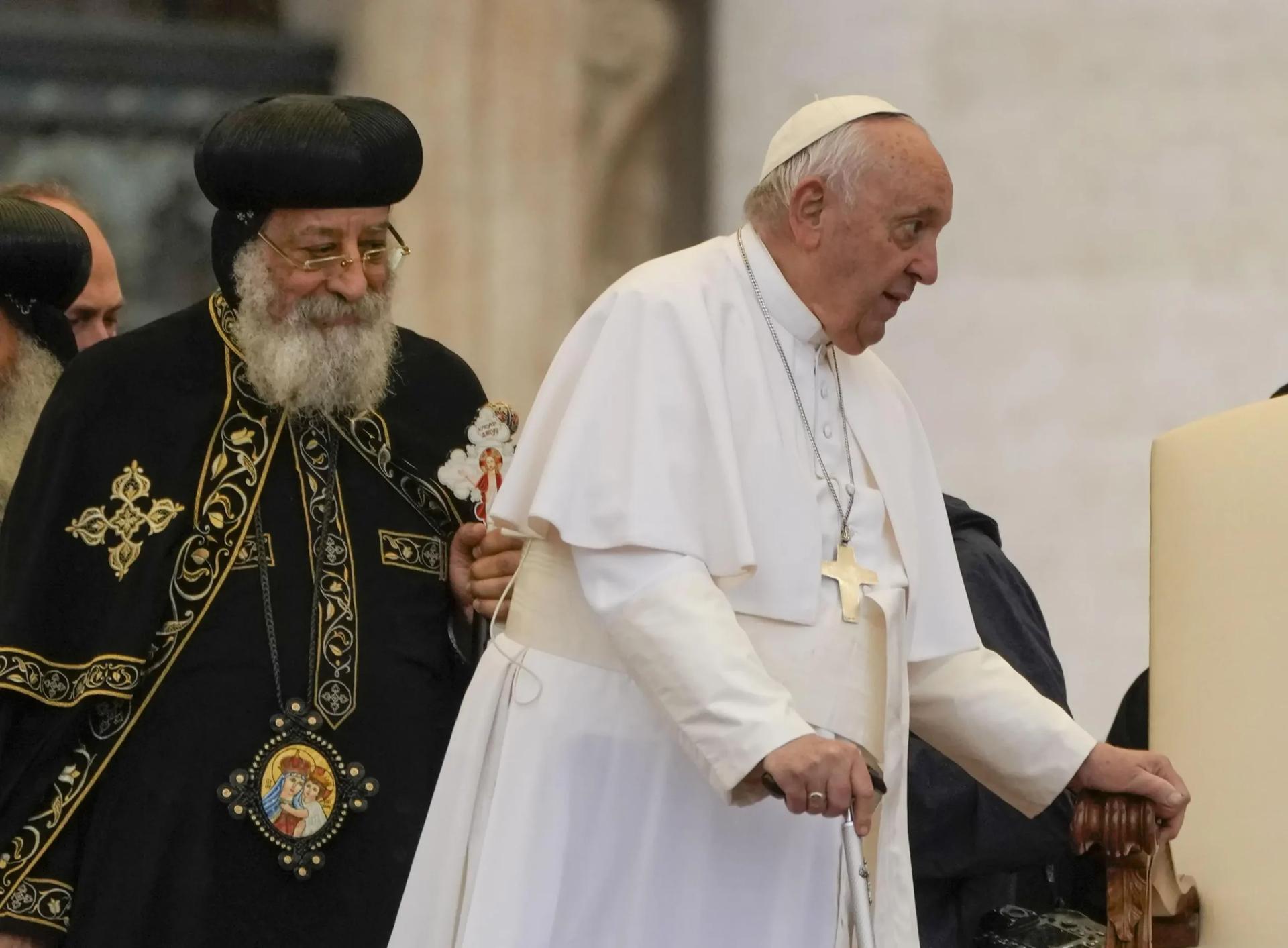One of the most influential Oriental Orthodox Churches has suspended theological dialogue with the Catholic Church and reaffirmed its opposition to “all forms of homosexual relationships,” in the latest blow to a recent Vatican document which sets a way for blessing members of same-sex relationships.
The declaration – “Fiducia Supplicans: On the Pastoral Meaning of Blessings,” was published Dec. 18 by the prefect of the Vatican’s Dicastery for the Doctrine of the Faith, Cardinal Víctor Manuel Fernández.
While saying traditional Church doctrine on marriage remains unchanged, clergy are encouraged in the document to exercise personal prudence and wisdom in joining in the prayer “of those persons who, although in a union that cannot be compared in any way to a marriage,” nonetheless wish to entrust themselves to God with a blessing.
RELATED: Vatican’s doctrinal czar offers method for giving same-sex blessings
The document has caused much controversy in the Catholic Church, with some bishops’ conferences saying they would refuse anything that appears to be a blessing of a homosexual couple.
Now the Coptic Church in Egypt has “decided to suspend the theological dialogue with the Catholic Church, re-evaluate the results that the dialogue has achieved since its beginning twenty years ago, and establish new standards and mechanisms for the dialogue to proceed.”
In the March 7 release of the Church’s Synod, the Coptic Church said it “affirms its firm position of rejecting all forms of homosexual relationships, because they violate the Holy Bible and the law by which God created man male and female, and it considers that any blessing, whatever its type, for such relationships is a blessing for sin, and this is unacceptable.”
This is he latest criticism on Fiducia Supplicans made by an Eastern Church.
The Synodal Biblical-Theological Commission of the Moscow Patriarchate – the leadership of the Russian Orthodox Church – spoke on the Vatican document on Feb. 20, saying “this innovation reflected a sharp departure from Christian moral teaching.”
RELATED: On war’s anniversary, is ‘Fiducia’ a new obstacle to Vatican’s peace push on Ukraine?
Metropolitan Hilarion Alfeyev of Budapest, head of the commission that studied Fiducia Supplicans, said the document as “a kind of shock.”
“Everyone now will believe that the Church blesses homosexual couples,” he said in an interview, adding it “deceives those who receive such a blessing and those who witness it.”
Despite these objections – both inside and outside the Catholic Church – Pope Francis has defended the document.
“The intent of the ‘pastoral and spontaneous blessings’ is that of demonstrating concretely the closeness of the Lord and of the Church to all those who, finding themselves in different situations, ask for help in carrying forward – sometimes in starting – a path of faith,” Francis said on Jan. 26.
RELATED: Pope Francis ‘amplifies’ the raucous debate over Fiducia Supplicans
“I want briefly to underline two things: The first is that these blessings, outside any context or form of a liturgical character, do not require moral perfection for being received; the second, that when a couple spontaneously comes forward to request [these blessings], it’s not the union that is blessed, but simply the persons who together made the request,” he continued.
“Not the union, but the persons, naturally taking account of the context, the sensibilities, and the places in which one lives, and the most appropriate way of doing it,” the pope said. [Translation from the Italian by Crux.]
However, the latest move by the Coptic Church makes it appear Fiducia Supplicans has cooled down its relationship with the Catholic Church.
RELATED: Pope includes Coptic Orthodox martyrs in Catholic compendium of saints
Pope Francis and Pope Tawadros II – the head of the Coptic Church – first met on May 10, 2013, and established the date as the annual “Day of Friendship between Copts and Catholics.”
Less than a year ago, Francis recognizing 21 Coptic Orthodox workers who were beheaded by Islamist militants in Libya as martyrs and placing them in the Roman Martyrology, considered one of the most significant ecumenical victories between the Catholic and Oriental Orthodox churches.
At the time, Bishop Brian Farrell, the secretary of the Dicastery for Promoting Christian Unity, said, “This is the beginning of a new era of relations.”
Follow Charles Collins on X: @CharlesinRome















